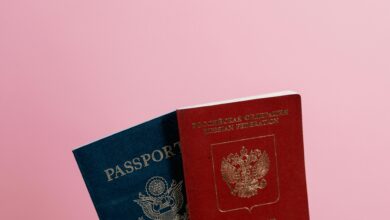Does Travel Insurance Cover Lost Baggage?

Traveling is an exciting experience, but it can also come with its fair share of stress—especially when things go wrong. One common concern for travelers is the possibility of lost, stolen, or delayed baggage. Whether you’re on a business trip, a family vacation, or an international adventure, losing your luggage can disrupt your plans and create unnecessary headaches. This raises an important question: Does travel insurance cover lost baggage?
In this article, we’ll explore how travel insurance addresses lost or delayed luggage, what types of coverage are available, and what you need to know to ensure you’re adequately protected.
What is Travel Insurance?
Before diving into the specifics of baggage coverage, let’s briefly define travel insurance. Travel insurance is a type of policy designed to protect travelers from financial losses associated with unforeseen events during their trips. These events can include medical emergencies, trip cancellations, flight delays, and yes—lost or stolen baggage.
Most travel insurance policies are customizable, allowing travelers to select coverage options that suit their needs. While some policies focus primarily on medical emergencies or trip interruptions, others provide comprehensive protection, including provisions for lost or delayed luggage.
How Does Travel Insurance Handle Lost Baggage?
When it comes to lost baggage, travel insurance typically offers two main types of coverage:
1. Baggage Loss Coverage
This part of the policy reimburses you if your luggage is permanently lost by an airline, bus company, train service, or other common carrier. For example, if your suitcase disappears during a flight connection and isn’t recovered within a specified timeframe (often 21 days), your travel insurance may step in to compensate you for the value of the lost items.
- What’s Covered: Clothing, personal belongings, electronics, toiletries, and other essential items.
- Limits: Most policies impose per-item limits (e.g., $500 for electronics) and overall caps (e.g., $3,000 total). It’s crucial to review these limits carefully before purchasing a policy.
- Exclusions: High-value items like jewelry, antiques, and collectibles may not be covered unless specifically listed in the policy.
2. Baggage Delay Coverage
If your luggage is delayed—not permanently lost—you may still incur expenses while waiting for it to arrive. Baggage delay coverage helps reimburse you for necessary purchases, such as clothing, toiletries, and other essentials, until your bags are returned.
- What’s Covered: Emergency purchases like clothes, toiletries, chargers, and basic necessities.
- Reimbursement Limits: Policies often set daily allowances (e.g., $100 per day) and maximum payouts (e.g., $500 total).
- Activation Period: Coverage usually kicks in after a certain delay period, such as 6, 12, or 24 hours, depending on the policy.
How to File a Claim for Lost or Delayed Baggage
If you find yourself dealing with lost or delayed luggage, here’s how you can file a claim under your travel insurance policy:
Step 1: Report the Incident
Notify the airline, cruise line, or transportation provider immediately about the missing or delayed baggage. Request a written report or reference number, as this documentation will be required for your insurance claim.
Step 2: Gather Documentation
Keep all receipts for emergency purchases made due to the delay or loss. If your luggage is permanently lost, compile a detailed list of the items inside, along with their approximate values and purchase dates.
Step 3: Submit Your Claim
Contact your travel insurance provider and submit a claim form. Include supporting documents such as:
- The written report from the airline or carrier
- Receipts for emergency purchases
- Proof of ownership for valuable items (e.g., photos, invoices)
- Any correspondence related to the incident
Step 4: Wait for Processing
Once submitted, your insurer will review the claim and determine the reimbursement amount based on your policy’s terms and limits.
What Isn’t Covered?
While travel insurance provides valuable protection, it’s important to understand its limitations. Here are some scenarios where your lost or delayed baggage might not be covered:
- Negligence: If you left your bag unattended in a public area and it was stolen, your claim could be denied.
- Pre-existing Conditions: Items that were already damaged or faulty before the trip may not qualify for reimbursement.
- High-Value Items: Expensive items like jewelry, cameras, and laptops often have strict sub-limits or require additional riders for full coverage.
- Non-Covered Carriers: Some policies only cover losses incurred through recognized airlines or carriers, excluding private transfers or informal arrangements.
- Excluded Perils: Certain events, such as natural disasters or acts of war, may fall outside the scope of coverage.
Always read the fine print of your policy to understand exclusions and avoid surprises later.
Tips for Maximizing Your Coverage
To make the most of your travel insurance policy and ensure you’re prepared for potential baggage issues, consider these tips:
1. Choose the Right Policy
Not all travel insurance plans are created equal. Look for one that includes both baggage loss and delay coverage, and check the limits to ensure they align with your needs.
2. Pack Smart
Avoid packing high-value or irreplaceable items in checked luggage. Instead, carry them in your carry-on bag to minimize risk.
3. Document Your Belongings
Take photos of your packed suitcase and keep a list of its contents. This documentation can serve as evidence if you need to file a claim.
4. Label Your Luggage
Clearly label your bags with your name, contact information, and destination address. Consider using distinctive tags or designs to make them easier to identify.
5. Track Your Bags
Use apps or services provided by airlines to monitor your luggage’s journey. Some companies even offer GPS-enabled trackers for added peace of mind.
Alternatives to Travel Insurance for Lost Baggage
If you don’t have travel insurance—or if your policy doesn’t provide sufficient coverage—you may have other options for recovering costs associated with lost or delayed baggage:
1. Airline Compensation
Airlines are legally obligated to compensate passengers for lost or delayed luggage under international treaties like the Montreal Convention. However, payouts are often capped and may not fully cover your losses.
2. Credit Card Protections
Many premium credit cards offer built-in travel protections, including coverage for lost or delayed baggage. Check your cardholder agreement to see what benefits are available.
3. Homeowners or Renters Insurance
Your homeowners or renters insurance policy might cover personal property lost during travel, though deductibles and limits vary widely.




